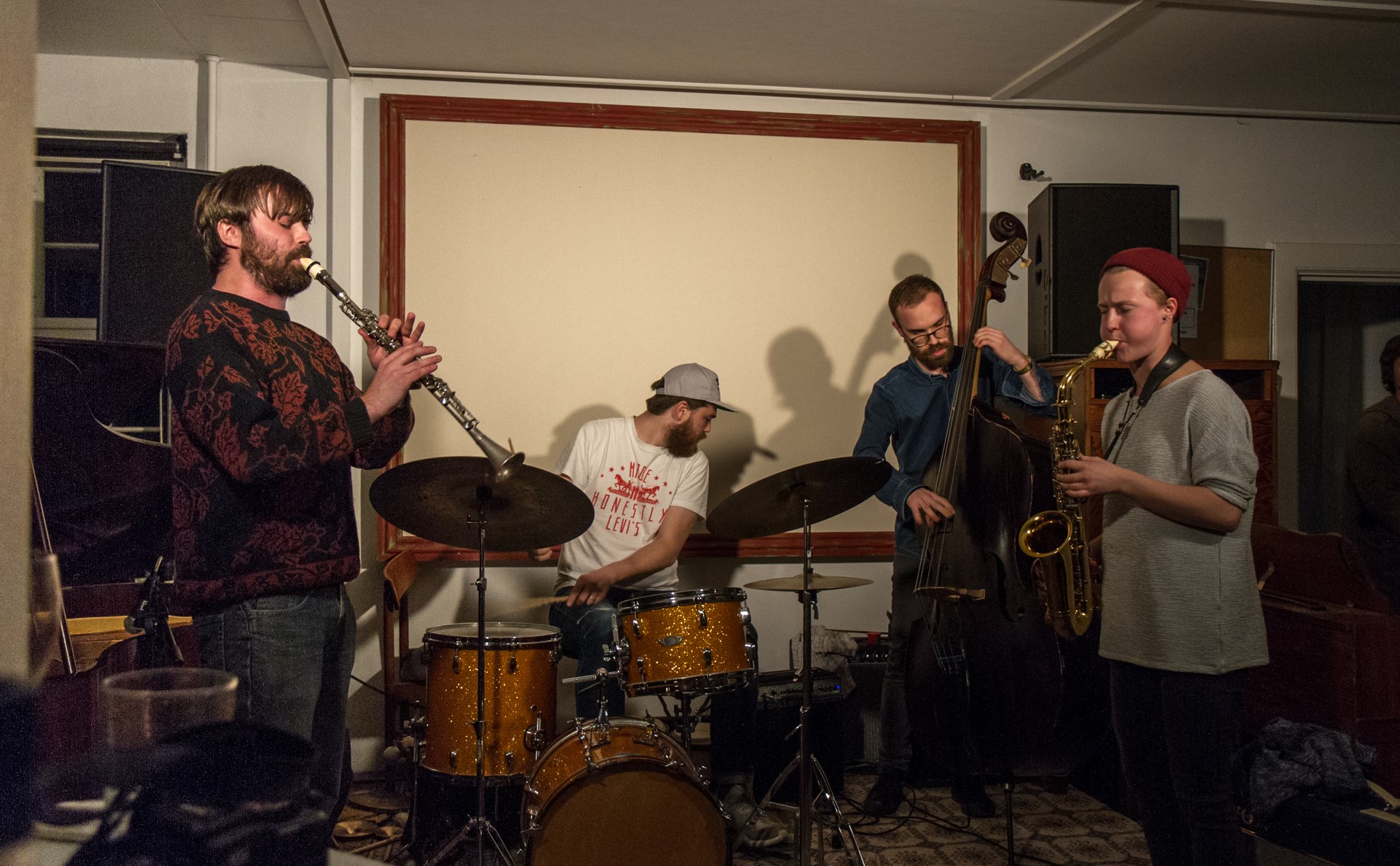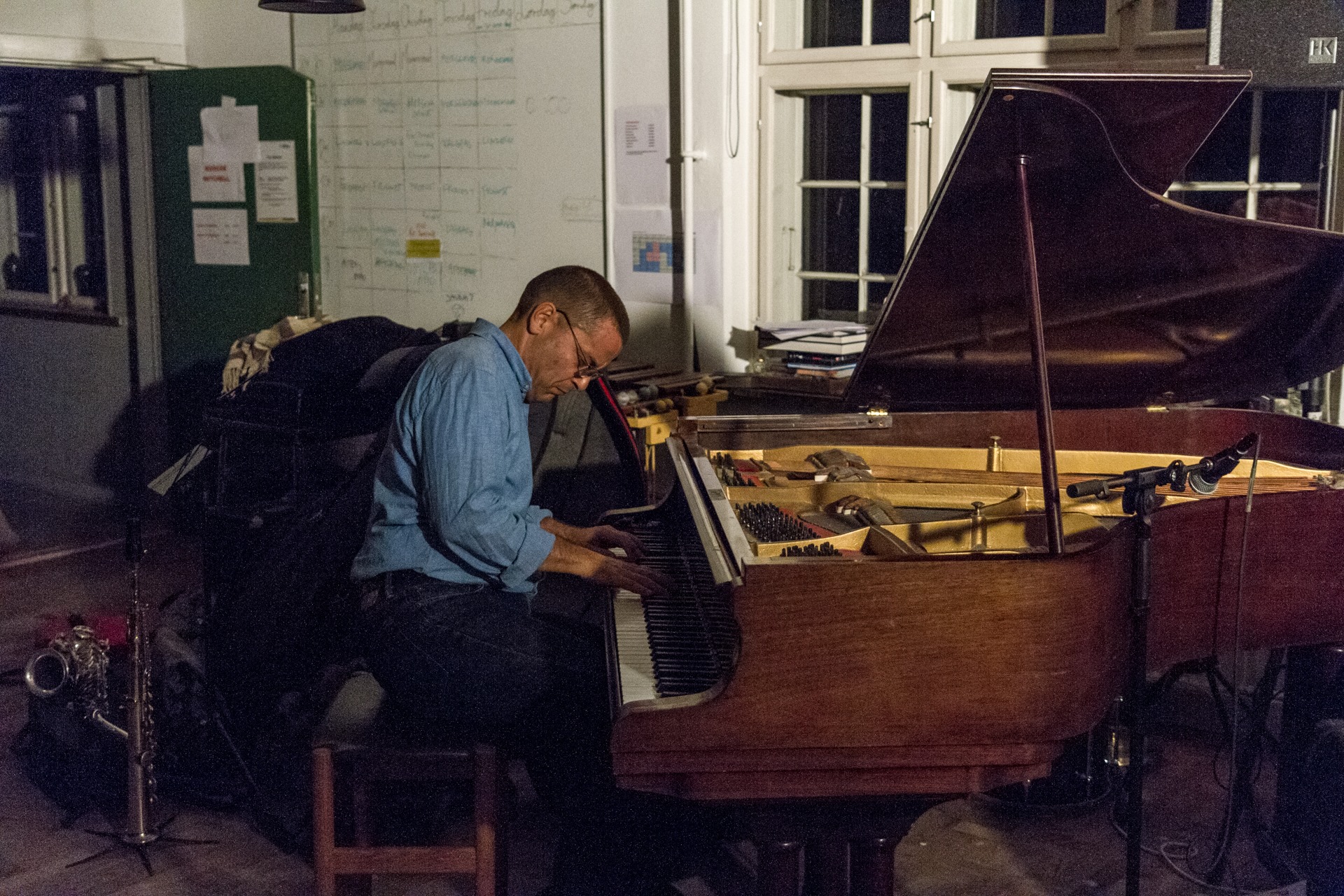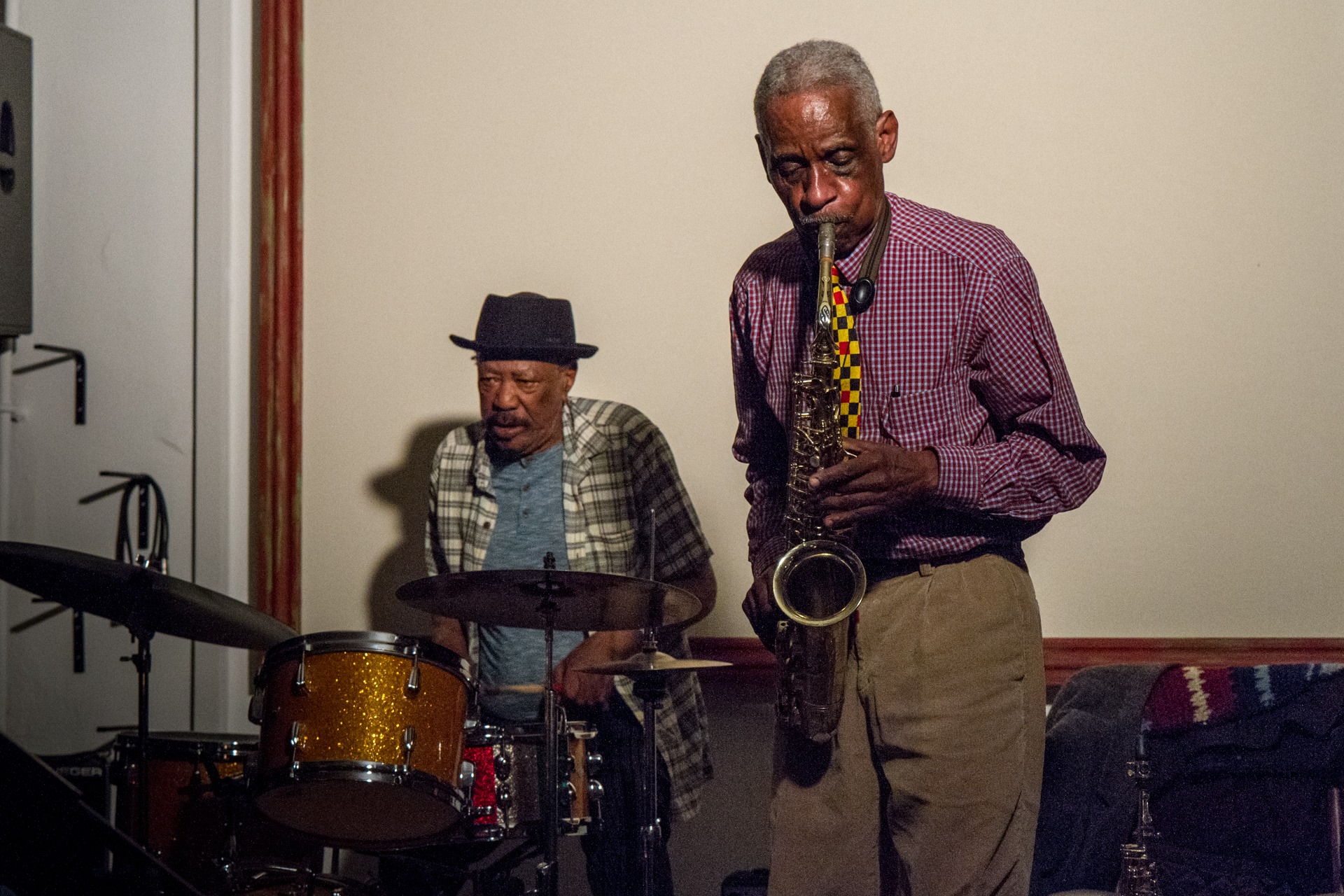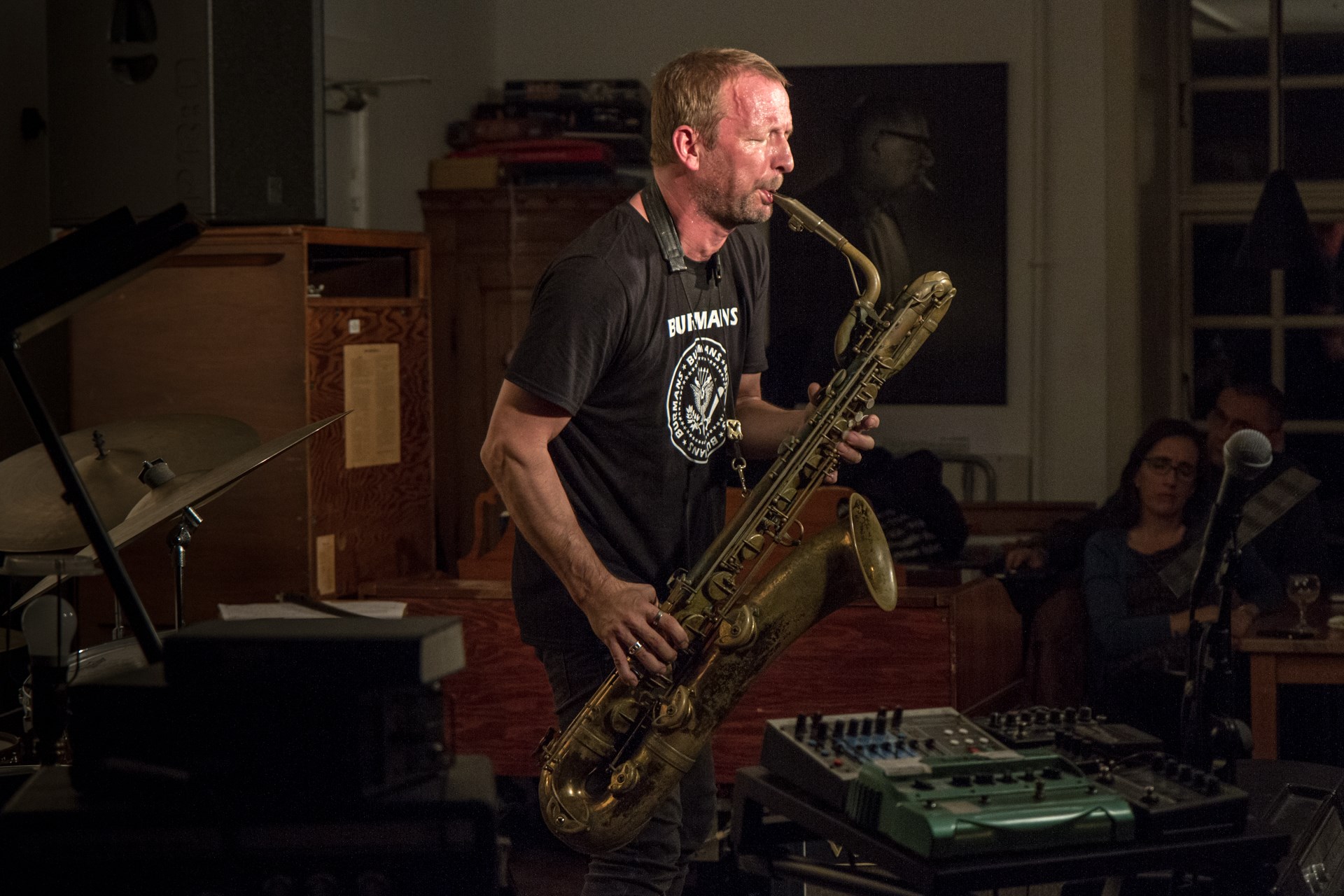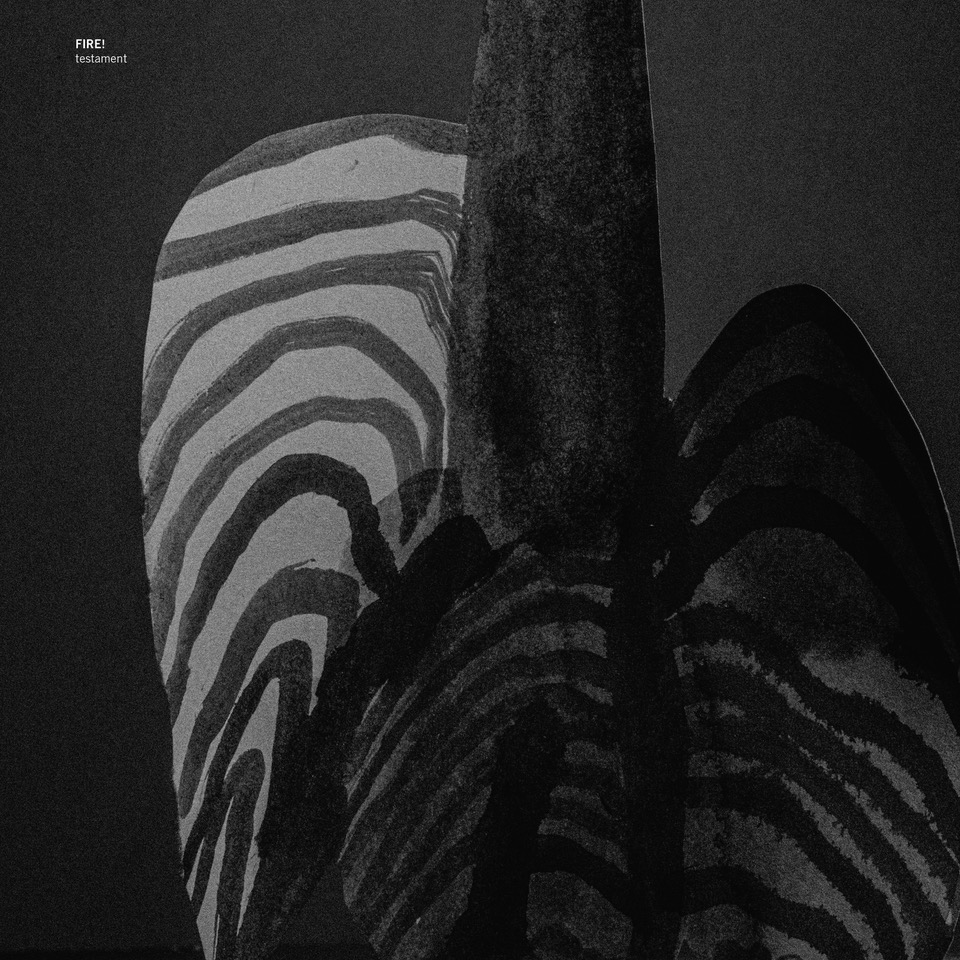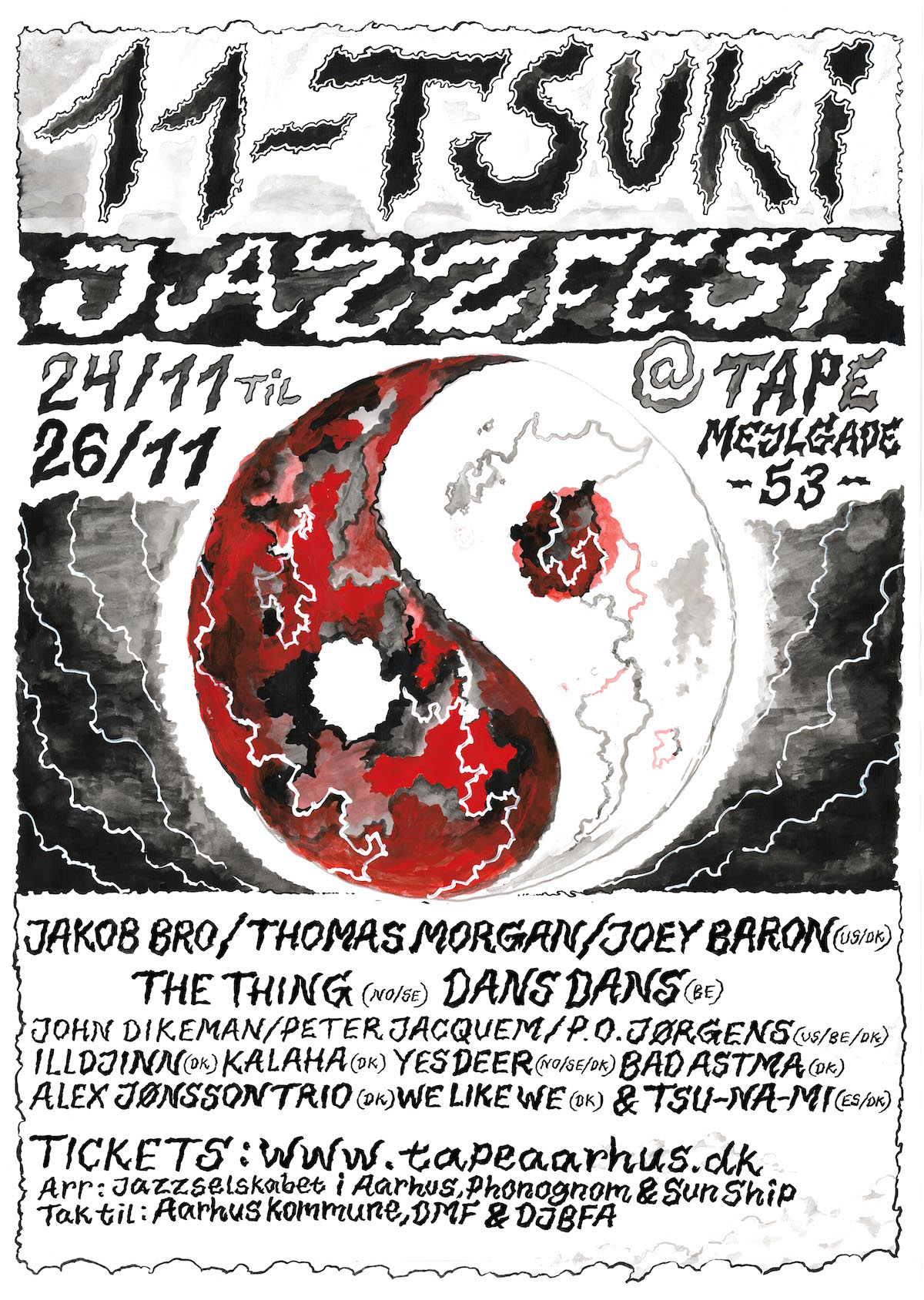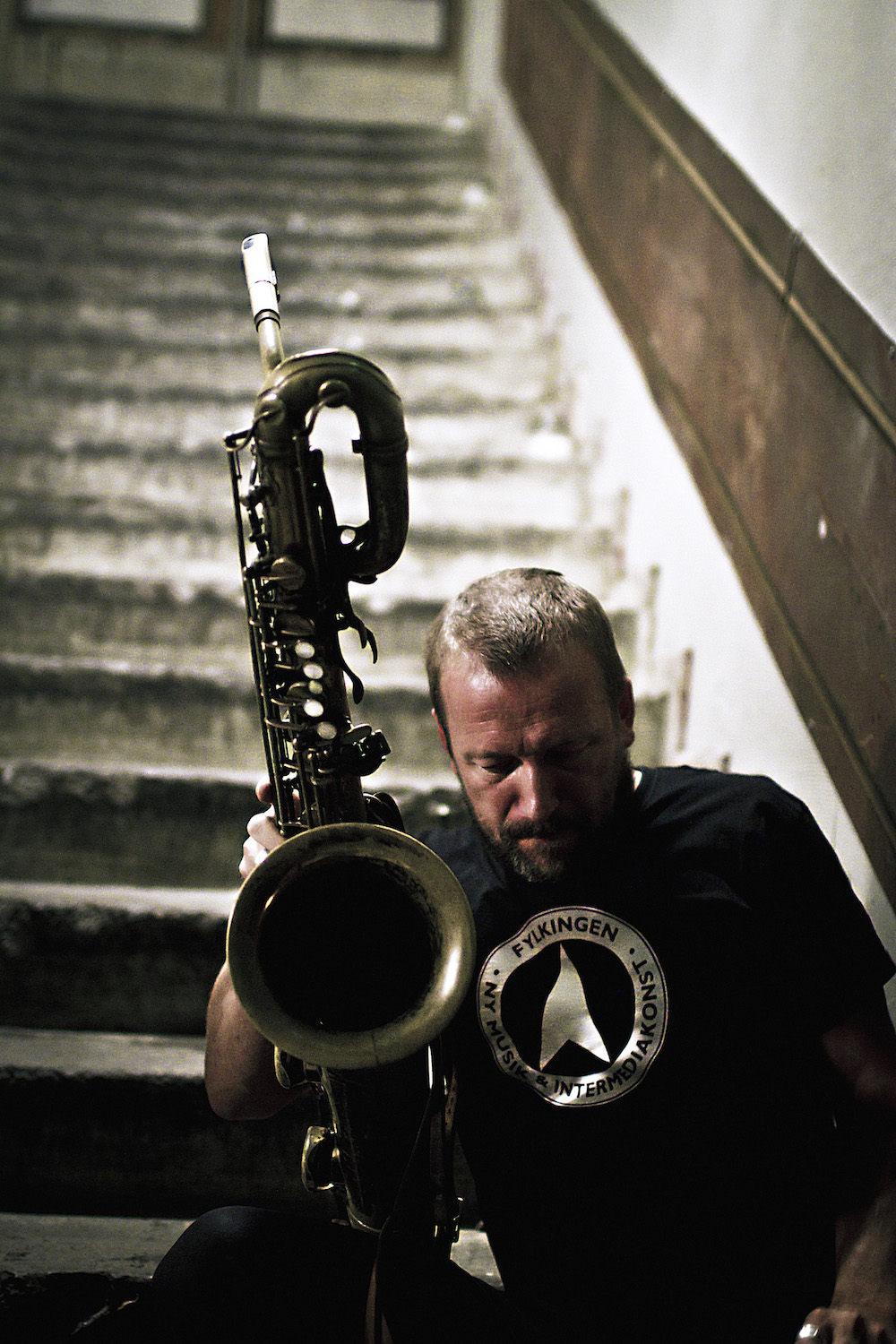Jyderup Accordeon Træf – A jetlag paradise
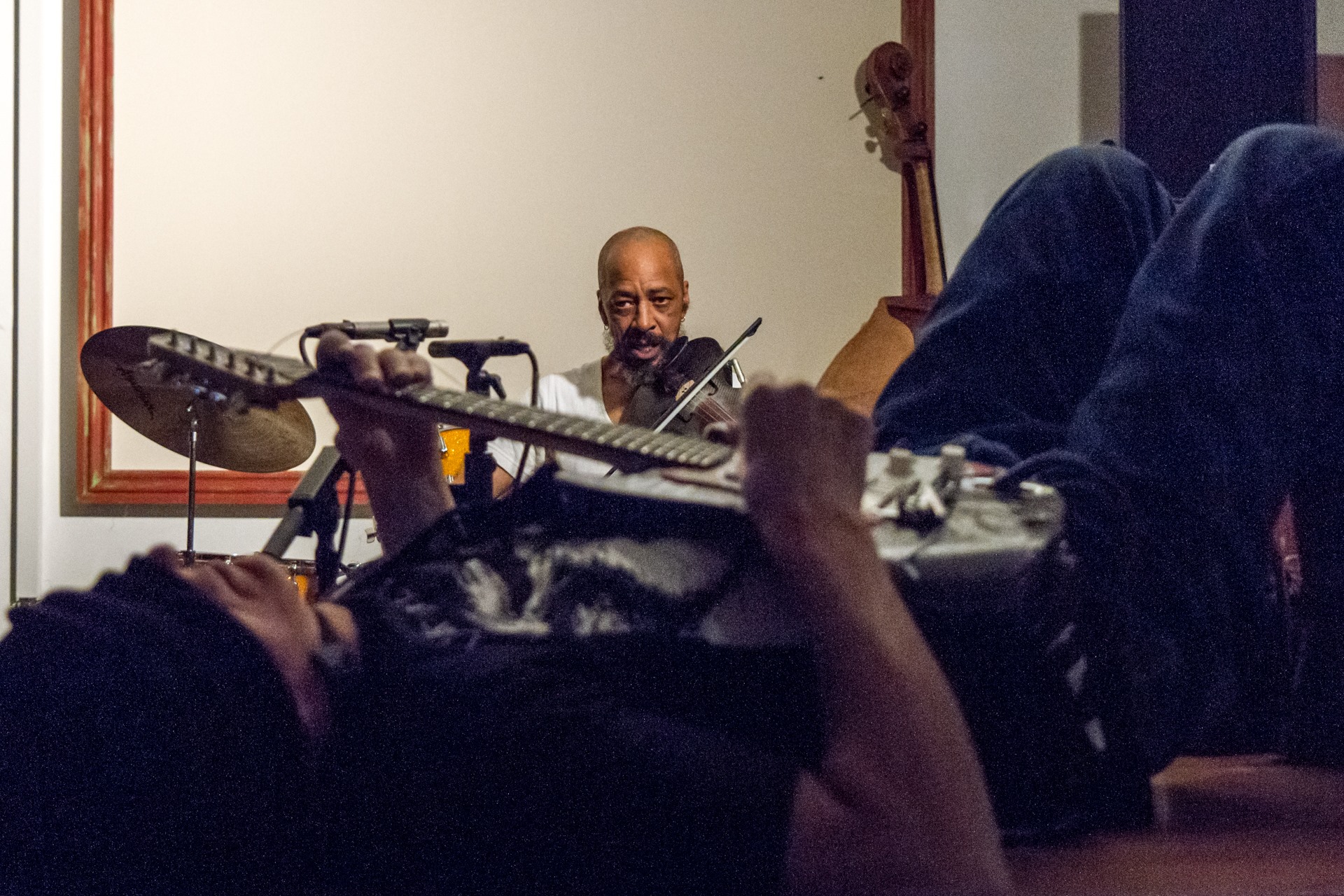
The fifth edition of the gathering / symposion Jyderup Accordeon Træf became a lesson in collectivity under the influence of improvisers Roscoe Mitchell, Charles Burnham, Mats Gustafsson, Kenny Millions a.o.
Essay by Judit Csobod – photos Anders Børup.
“Where I go?
Where the music comes from.
Where is that?
I don’t know.” (2)
Categories dissolved
Eight completely different characters (3) of the past-present and the contemporary creative and improvised music tradition made sure we all got closer to the source of music, and here I do not mean improvised music, but to music as a universal entity, above genre and style categorisations.
“Don’t study styles,” says Roscoe Mitchell at his first combo session, “Study music”, and since we are living in times, where all information is available, the responsibility of a future artist is to take in and digest the most information possible in order to move itself and the music outside of the comfort zones created by categorisation. And what a lesson we have learned by walking a whole week right on the borderline of composition and improvisation! Because…to tell the truth, improvisation has become the antithesis of improvisation, but is it really that? As one conclusion of the week, I dare to say, improvisation is more composition than composition itself is. Improvisation is the art of collective, instant composition, the paperless, penless composition of forms and spaces for interactions.
In Jalalu Kalvert-Nelson’s (one of two composition teachers of the the Jyderup faculty) demonstration of dealing with composition with an improvisers mind, a melody line can be treated indefinite ways while playing it resulting in infinite variations of musics. According to the level of organic symbiosis of improvisation and composition we all could experience throughout the week, be it at the presentation of the different combos’ work, the evening concerts or the integration of composition classes to the daily program as a new feature. Most of the workshop leaders also emphasized (some verbally, some throughout applied educational, cooperative methods) the importance of the parallel study of composition and improvisation.
Ensemble revised
To work as an ensemble was the central point of the work of the six combos. The individuality of the different combo members here needs to dissolve and reassemble in the constant changes of musical times and spaces. In the music of anything-can-happen, there are no rules of the traditional-kind, but the rules of the musical-social. The rules of human coexistence here become musical rules. Giving space to each other, listening to one another, using silence as a comfort zone from where one can move out to the site of conversations, discussions and arguments, are the principles in play in creating universal ensemble music, the the way to shape the one collective thought, the lesson in the art of collective thinking. How to let a good thought, a clear message happen, by either going along with it or replacing it with a better thought but never interrupting nor sacrificing it otherwise. But how does one navigate in the site of endless transitions, non-rule-like rules (lack of musical guiding lines such as a fixed theme, meter or chord changes), in and out of comfort zones towards the conclusion of the collective thought? One use intuition through listening to one another in order not to get lost in the black holes of “endless endings”.
Pearl in the creation
Getting closer to the source of music is though not only an act of human unity in world peace. As a beautiful pearl is being created through an oyster´s struggle with a piece of sand inside its shell, irritation and struggle can also be crucial elements in the creation of the collective thought, in getting closer to the source of music. In order to reflect universality, all elements available are to be put in play in the act of collective interaction, and this may be the most difficult lesson to learn. There is a risk to the shades of grey. Finding the overtly subjective limits of irritation, insult and terror requires a fully empathetic individual, a real listener. One, that knows how much can be mobilized in order to serve the birth of a pearl but not to sacrifice the oyster. Intuition here again is to serve the responsible act. Music (along with society) is a playground of adults armed with empathy.
Community in dynamic
The overall conclusion of the gathering therefore is the changing same. Art is not only art, music in not just music, but the utopia of our society, where people never give up trying to learn, how to coexist with each other in unity, how to ensemble to listen to each other, give space to each other, adopt a mutual time and thus open up for conversations, debates, clashes to conclude in a collective thought. Being as offbeat characters as workshop leaders were, their faculty ensemble played the most beautiful pearl of music, a collective thought, and being as diverse as the participant-crowd was, last day’s combo-presentations and the gala dinner showed the face of a strong community of responsible adults possessing both the empathy of painless confrontation and the intuition for fruitful cooperation. Just the right ingredients for turning a musical utopia into future reality.
Epilogue
The quasi-annual Jyderup Accordeontræf is a course in free jazz and improvisation, led by the most prestigious international musicians, arranged by Danish drummer, community-builder Kresten Osgood and journalist, history-enthusiast, højskole-guru Poul-Henrik Jensen. The idea is to divide the participating mixed-class-gender-nationality-background instrumentalists into six ensembles and two composition classes, spice it up with Danish ‘højskole’-traditions and use nature in autumn transition as a background-drone.
This year’s (the 5th) Jyderup Accordeon Træf was a fine display of collectivity, subtitled as meditation on the rhetoric question ‘where does the music come from?’.
Writer/music aesthete Judit Csobod took part in the workshop/gathering October 23-30, 2016 and drew inspiration to write this essay.
References: 1. ‘Jetlag Paradise’ is a poem written and performed by American musician Kenny Millions at the event. The poem was inspired by the serious jetlag combined with the paradise-like surroundings Kenny might have experienced for quite a few days/nights after his arrival.
2. A mantra used by Charlie Burnham at his combo-practice.
3. A detailed list of the faculty members can be found here
